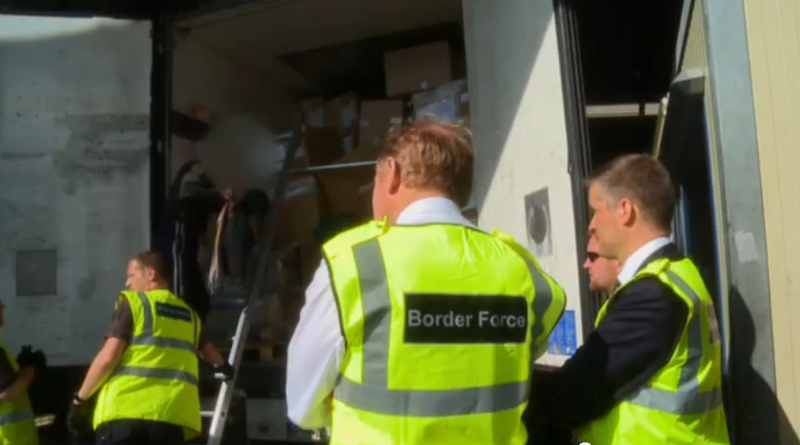
The UK Border Force has recently returned a group of migrants to France after their small boat encountered trouble in the English Channel.
This event marks a potential shift in policy at a critical juncture.
As warmer weather approaches, Channel crossings are increasing, reigniting debates about migration. Avery Anapol from The Conversation discussed this incident with Alex Balch, a migration and human rights researcher at the University of Liverpool. This article reflects the author's opinion and not necessarily that of the UK Defence Journal. For article submissions on this or other topics, please refer to our submission guidelines.
Incident Overview
On the afternoon of July 17, a small boat in French waters near Calais, carrying over 70 people, was reported to be in distress. Tragically, one person lost their life. British ships, including a Border Force vessel and an RNLI lifeboat, assisted the French coastguard in rescuing people from the water. The migrants were then returned to France, reportedly at the request of the French coastguard, likely due to the need for emergency medical services.
This event is notable as France typically refuses to allow the return of rescued migrants once they are aboard UK vessels. The Home Office has denied any policy change, but it appears they are briefing journalists that this indicates improved cooperation from French authorities.
Responsibility for Rescues in the Channel
The English Channel, lying between the UK and France, falls under the jurisdiction of both countries. Determining responsibility for rescues can be complex. Usually, French authorities handle incidents in their territorial waters, but British ships sometimes assist. In 2021, a Border Force vessel entered French waters to rescue migrants, bringing them to Dover.
The UK and France have a long history of cooperation on search and rescue operations in the Channel, supported by various agreements and international laws mandating rescue duties. Typically, the country whose vessel conducts the rescue assumes primary responsibility, meaning rescued migrants are usually taken to that country's shores.
The recent incident suggests possible opportunism from the new UK government, keen to show improved cooperation with France on migrant returns.
Potential Policy Change on Small Boat Crossings
This incident likely represents emergency cooperation rather than a new policy. Keir Starmer's election statements indicated a continuation of policies focused on border security. While there has been a rhetorical shift towards cooperation with the EU and respect for human rights, concrete policy changes remain unclear.
The new government has established a border security command with "counter-terror style powers" to combat smuggling gangs. They have also scaled down deterrence methods like the Rwanda plan and the ban on asylum applications for irregular migrants. Starmer has shown openness to offshore processing, though no formal announcement has been made.
UK-France Relations on Asylum
Recent years have seen multiple agreements between the UK and France, with the UK investing hundreds of millions of pounds to enhance French border security. French President Emmanuel Macron has emphasized the need for the UK to provide legal asylum routes to reduce migrant build-up on the French coast. France processes significantly more asylum seekers than the UK, and its government argues that it bears the brunt of the UK's reluctance to accept its share of refugees crossing the Channel.
During the European Political Community summit at Blenheim Palace, Macron and Starmer agreed to strengthen cooperation on irregular migration.
Current Channel Crossing Statistics
In 2022, approximately 46,000 people crossed the English Channel in small boats. This number dropped to 29,000 in 2023. So far this year, nearly 15,000 crossings have been recorded, slightly higher than the same period in 2022. Small boat arrivals account for a small fraction of overall UK immigration. Photo by UK Home Office, uploaded by Opihuck, Wikimedia commons.




































